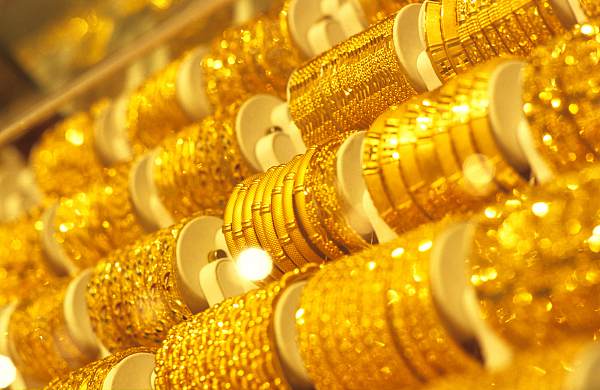


China consumed a total of 1089.07 tons of gold in 2017, up nearly 10% from a year ago, according to statistics released by the China Gold Association (CGA) on Feb. 1.
Gold use went up in jewelry, gold bars, and industry sectors, with consumption of 696.5, 276.39, and 90.18 tons, respectively. However, the 26 tons in gold coin making marks a decrease, down by 16.64%.
The recovery of high-end consumption in 2017, especially in second- and third-tier cities, was a major reason for the pickup in domestic gold consumption.
In addition, the increasing demand of investment in gold, which was a result of the fluctuations in the real estate, security, and finance markets, also contributed to the rise of gold consumption.
The year 2017 marks the fifth consecutive year that China’s gold consumption has ranked first in the world.
The statistics show that China’s total gold production stood at 517.49 tons in 2017, including 91.348 tons of imported raw materials, down by 3.35% year-on-year.
CGA said that 2017 was the hardest year for Chinese gold enterprises because of the implementation of environmental and resource taxes, as well as the closure of gold mines in natural reserves. Even so, China’s gold production has topped the world for 11 consecutive years, despite the first fall of output since 2000.
 Fire brigade in Shanghai holds group wedding
Fire brigade in Shanghai holds group wedding Tourists enjoy ice sculptures in Datan Town, north China
Tourists enjoy ice sculptures in Datan Town, north China Sunset scenery of Dayan Pagoda in Xi'an
Sunset scenery of Dayan Pagoda in Xi'an Tourists have fun at scenic spot in Nanlong Town, NW China
Tourists have fun at scenic spot in Nanlong Town, NW China Harbin attracts tourists by making best use of ice in winter
Harbin attracts tourists by making best use of ice in winter In pics: FIS Alpine Ski Women's World Cup Slalom
In pics: FIS Alpine Ski Women's World Cup Slalom Black-necked cranes rest at reservoir in Lhunzhub County, Lhasa
Black-necked cranes rest at reservoir in Lhunzhub County, Lhasa China's FAST telescope will be available to foreign scientists in April
China's FAST telescope will be available to foreign scientists in April "She power" plays indispensable role in poverty alleviation
"She power" plays indispensable role in poverty alleviation Top 10 world news events of People's Daily in 2020
Top 10 world news events of People's Daily in 2020 Top 10 China news events of People's Daily in 2020
Top 10 China news events of People's Daily in 2020 Top 10 media buzzwords of 2020
Top 10 media buzzwords of 2020 Year-ender:10 major tourism stories of 2020
Year-ender:10 major tourism stories of 2020 No interference in Venezuelan issues
No interference in Venezuelan issues
 Biz prepares for trade spat
Biz prepares for trade spat
 Broadcasting Continent
Broadcasting Continent Australia wins Chinese CEOs as US loses
Australia wins Chinese CEOs as US loses